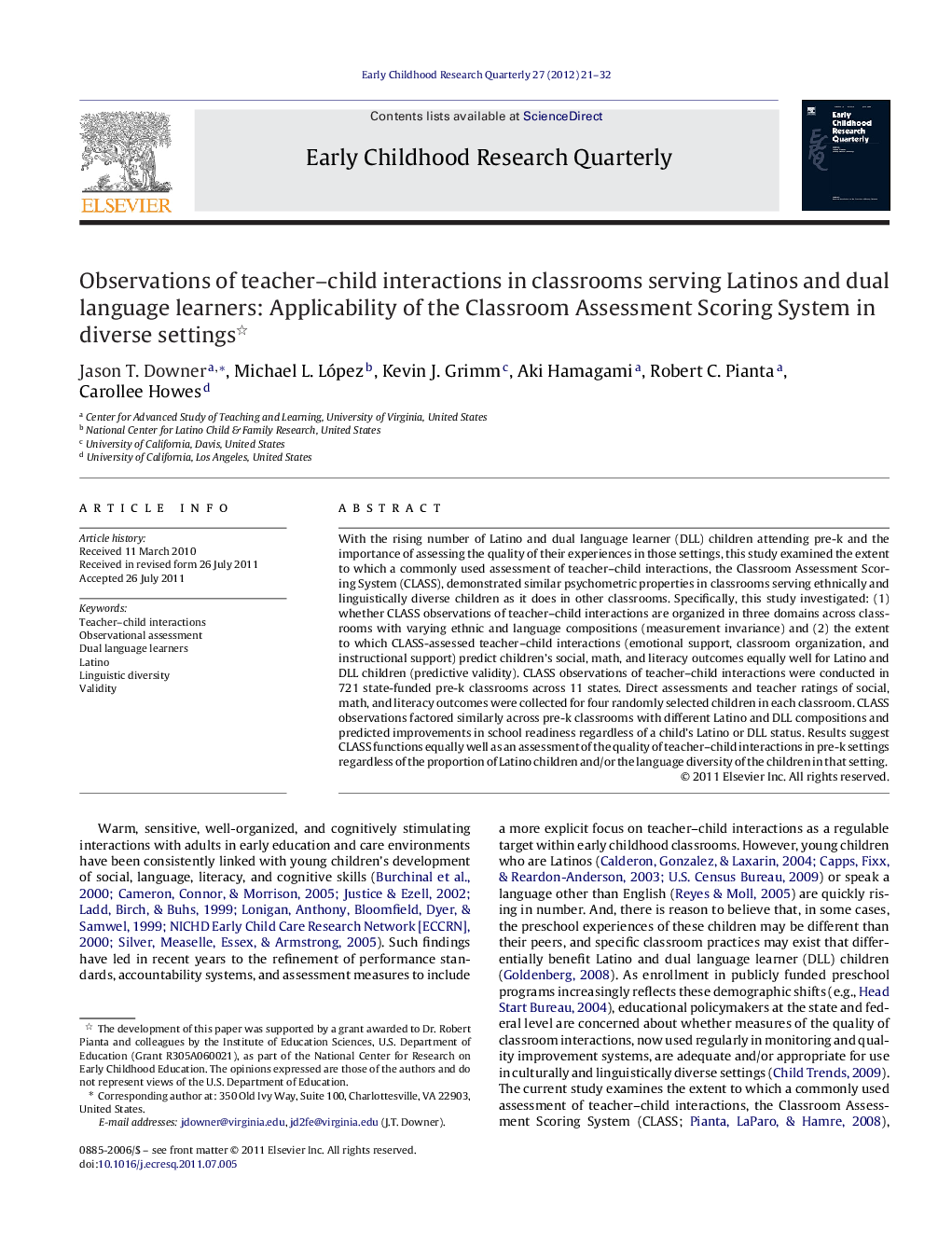| Article ID | Journal | Published Year | Pages | File Type |
|---|---|---|---|---|
| 353916 | Early Childhood Research Quarterly | 2012 | 12 Pages |
With the rising number of Latino and dual language learner (DLL) children attending pre-k and the importance of assessing the quality of their experiences in those settings, this study examined the extent to which a commonly used assessment of teacher–child interactions, the Classroom Assessment Scoring System (CLASS), demonstrated similar psychometric properties in classrooms serving ethnically and linguistically diverse children as it does in other classrooms. Specifically, this study investigated: (1) whether CLASS observations of teacher–child interactions are organized in three domains across classrooms with varying ethnic and language compositions (measurement invariance) and (2) the extent to which CLASS-assessed teacher–child interactions (emotional support, classroom organization, and instructional support) predict children's social, math, and literacy outcomes equally well for Latino and DLL children (predictive validity). CLASS observations of teacher–child interactions were conducted in 721 state-funded pre-k classrooms across 11 states. Direct assessments and teacher ratings of social, math, and literacy outcomes were collected for four randomly selected children in each classroom. CLASS observations factored similarly across pre-k classrooms with different Latino and DLL compositions and predicted improvements in school readiness regardless of a child's Latino or DLL status. Results suggest CLASS functions equally well as an assessment of the quality of teacher–child interactions in pre-k settings regardless of the proportion of Latino children and/or the language diversity of the children in that setting.
► Psychometric properties of CLASS in ethnically and linguistically diverse settings. ► CLASS factor structure similar across prek classrooms with different Latino and DLL compositions. ► CLASS predicts improvements in school readiness, regardless of a child's Latino or DLL status.
